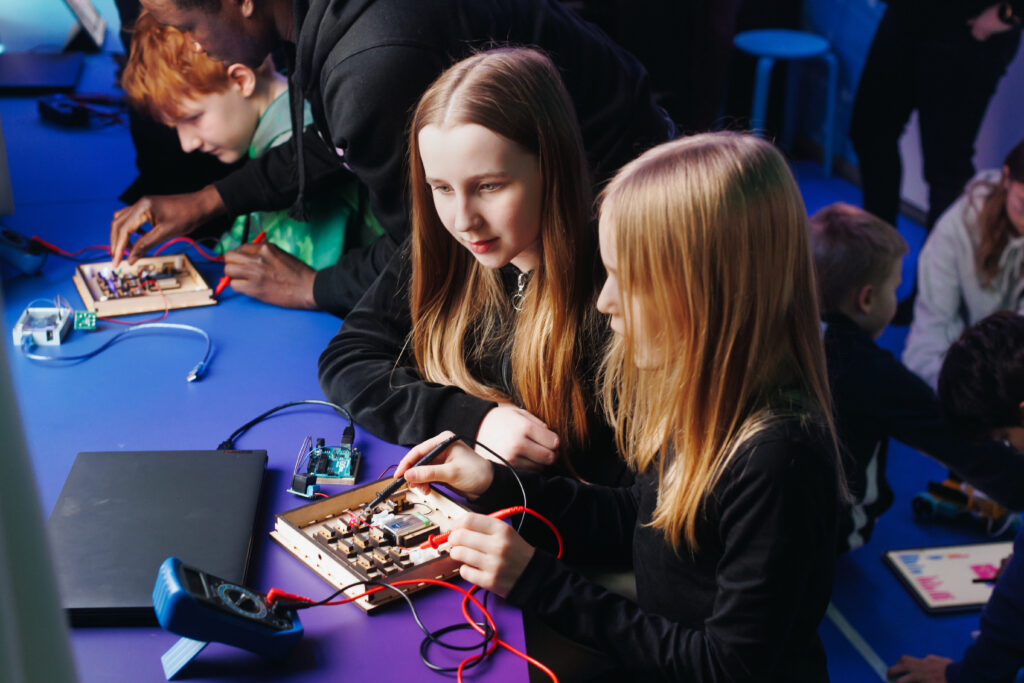The City of Helsinki together with the University of Helsinki, Aalto University and ACRE is implementing a project called Resourceful Sharing: Co-Usable Innovation and Learning Environments (JAVIST). The sharing economy and the smart use of resources support the goals of sustainability and responsibility.

TEKLA, a mobile edtech testbed is part of JAVIST. It serves as an innovative experimental platform that collaborates with educational institutions, providing companies the opportunity to test and co-develop their products with end-users. Additionally, it allows teachers to borrow a variety of shared and co-usable learning technologies, including Lego Education Spike, Makey Makey, Micro:bit, Sphero robots, and Osmo, through a reservation calendar. Therefore, TEKLA has utilized various calendars to manage device reservation for classroom use, considering several factors such as UX/UI design, availability of learning devices, processing time, and accessibility.
Initially, teachers could reserve devices by directly contacting us or by sending us an email. This approach required constant coordination and communication between teachers and us. It was quite manual and time-consuming which led to explore alternatives.
Therefore, TEKLA shifted to Excel sheets to manage reservations. However, due to the difficulty in use, this method proved to be inefficient which led to a simpler solution i.e. paper calendar. Although, it was easily accessible compared to Excel (as it was available on each cabinet), it could be misplaced, torn and had less space to include details which lead to the exploration of digital solutions.
Afterwards, Education Division proposed a Microsoft Teams-based reservation calendar allowing teachers to reserve learning technologies directly through an online platform. Feedback from the teachers revealed that the system was complex and challenging to use. Many teachers struggled with both making reservations and tracking their own bookings. In addition, a lot of elements on the interface made it difficult for them to use the system. They also lack the opportunity to learn new technologies due to the time constraint. In response to these concerns, a meeting was arranged between Education Division representative and teachers to discuss and address usability issues.
Meanwhile, we are using an updated version of the Excel-based calendar. This new calendar has been well-received by teachers, as it is easy to use. They have successfully reserved several devices without facing any issues or requiring additional assistance. However, it is manual, requiring teachers to input all necessary information themselves. As a result, there is still a need for an automated reservation calendar.
Hence, we continue to seek the best solution, that is both accessible and user-friendly. Our goal is to ensure quick and efficient access to devices, providing a seamless experience for teachers.
Written by Kashifa Khalid
Project Planner at TEKLA – JAVIST
Eager to contribute to Edtech projects; As part of TEKLA—JAVIST, I’m collaborating with educators for engaging lesson plans (i.e. planning, preparing, and conducting). Overseeing device reservation process for classroom use. Managing and ensuring that required innovative technologies are available and accessible for enhanced learning experience in classrooms.